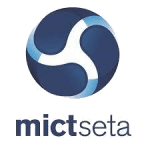Knowledge Management – an organisation’s very own gold mine

Knowledge Management or ‘KM’ refers to the process of creating, sharing, using and managing an organisation’s knowledge and information. The purpose behind the KM approach is to achieve organisational objectives by using knowledge to its greatest potentials.
Knowledge Management – an established discipline since 1991
Knowledge Management has been an established discipline since 1991. Many large companies, non-profit organisations and public institutions deploy dedicated resources into KM initiatives and these initiatives are generally focussed on organisational objectives such as competitive advantage, improved performance, innovation, integration, the sharing of lessons learned and continuous improvement of the organisation. Knowledge Management is frequently incorporated into a company’s IT or Human Resources function and there are dedicated consulting companies that provide Knowledge Management advice to organisations to help them embed the KM philosophy as an indispensable tool.
Knowledge Management is an organisational learning enabler
Hence, Knowledge Management efforts tend to overlap with organisational learning, however, KM is different to organisational learning in that it focusses on the management of knowledge as a strategic business asset and fostering the sharing of knowledge. Knowledge Management is therefore an organisational learning enabler.
Knowledge Management seeks to pinpoint what is essentially competitive advantage in terms of knowledge that is inherent within the minds of individuals working within an organisation. Within organisations the effective use of Knowledge Management also means that systems need to be created to allow the establishment of new knowledge to be harnessed and communicated to employees for the purpose of ensuring that such is embedded within the ethos of the company’s product and service offerings. Yet, the effective use of Knowledge Management also involves a structured approach when it comes to ensuring that knowledge is accessible when needed and disseminated to individuals responsible for making decisions well in advance.
Why should organisations invest in Knowledge Management?
While the reasons for investing in Knowledge Management are numerous, here are some of the main ones:
- Helps to retain staff for longer and reduces intellectual capital loss as a result of individuals leaving the company.
- Higher levels of employee satisfaction as a result of empowerment and increased personal development.
- Not ‘reinventing the wheel’ for every new initiative translates into major cost savings.
- Disseminating knowledge quickly and easily means higher levels of productivity.
- Encourages democracy in the workplace by providing easy access to knowledge by all individuals.
- With knowledge learning is that much faster.
- Faster learning means greater competitive advantage.
- Knowledge management software means access by everyone at the click of a mouse.
Knowledge sharing versus information hoarding
To remain competitive, organisations should embrace knowledge sharing as a philosophy as opposed to what is often seen as information hoarding. Hence, the focus shifts from the strategic management of financial and physical resources to the effective management of intellectual capital. Many organisations now recognise that knowledge has tremendous value and as such have embarked upon extensive knowledge management programmes.
The advantages in “knowing what you know”
Many executives and business owners are not always aware of the knowledge pool that exists within their organisations and it is the task of Knowledge Management to establish systems that leverage the collective knowledge, expertise and experience within the organisation. This is in line with shifting from a more industrial-based economy to one that is information-based.
An organization’s ability to effectively mine its own knowledge is a definite competitive advantage and as a consequence, knowledge has become the new basic economic resource over labour, natural resources and capital. Knowledge Management can therefore be seen as the organisation’s very own gold mine.
Two types of knowledge
Two types of knowledge exist within organisations.
Tacit knowledge
Tacit knowledge is difficult to articulate and refers to the personal, context specific and experiential knowledge that lives in the minds of individuals and teams.
Explicit knowledge
Explicit knowledge is easily communicated and shared and consists of codified procedures, scientific formulas or universal principles.
How is tacit knowledge communicated?
There are a number of ways that tacit knowledge can be disseminated through the organisation. For instance:
- Mentorships
- Apprenticeships
- Communication via internal mail
- Communication via the company Intranet
Communities of practice
The company’s internal mail system or intranet are extremely useful in disseminating knowledge throughout the organisation. Yet, knowledge is also often transferred via informal communication channels through communities of practice. For instance, groups of individuals that gather around the coffee machine or aqua cooler or even smokers who convene in the smoking area are in the business of exchanging knowledge. Knowledge transferred in this manner is extremely useful since it helps individuals to get their work done more effectively. It is for this reason that communities of practice find their place in the overall knowledge management effort.
Two types of Knowledge Management Strategies
Two different types of Knowledge Management strategies exist within most companies.
-
Codification strategy
The first type is focussed on using computer hardware whereby knowledge is codified and stored in a database for easy use and access. This is known as the codification strategy.
-
Mentoring strategy
In certain organisations knowledge is closely affiliated with the individuals responsible for creating it and is mainly shared via direct person to person contact. This often happens when mentors pass on information to their mentees.
Following the most appropriate strategy
It is important for companies to follow the Knowledge Management strategy that is most appropriate. Since, following the wrong strategy or trying to focus on both types at once can have detrimental effects on the business. Those organisations that use knowledge effectively tend to pursue one strategy over the other and use other to support the first. These two strategies should only be used simultaneously when business units within the organisation operate like stand-alone entities.
Any organisation that intends to manage knowledge as a resource should design and implement processes and procedures that create, safeguard and utilise known knowledge and incorporate it into other dedicated initiatives. Effective knowledge management systems harness the skills and competencies inherent within organisations and enable knowledge growth by encouraging individuals to perform at their best.



